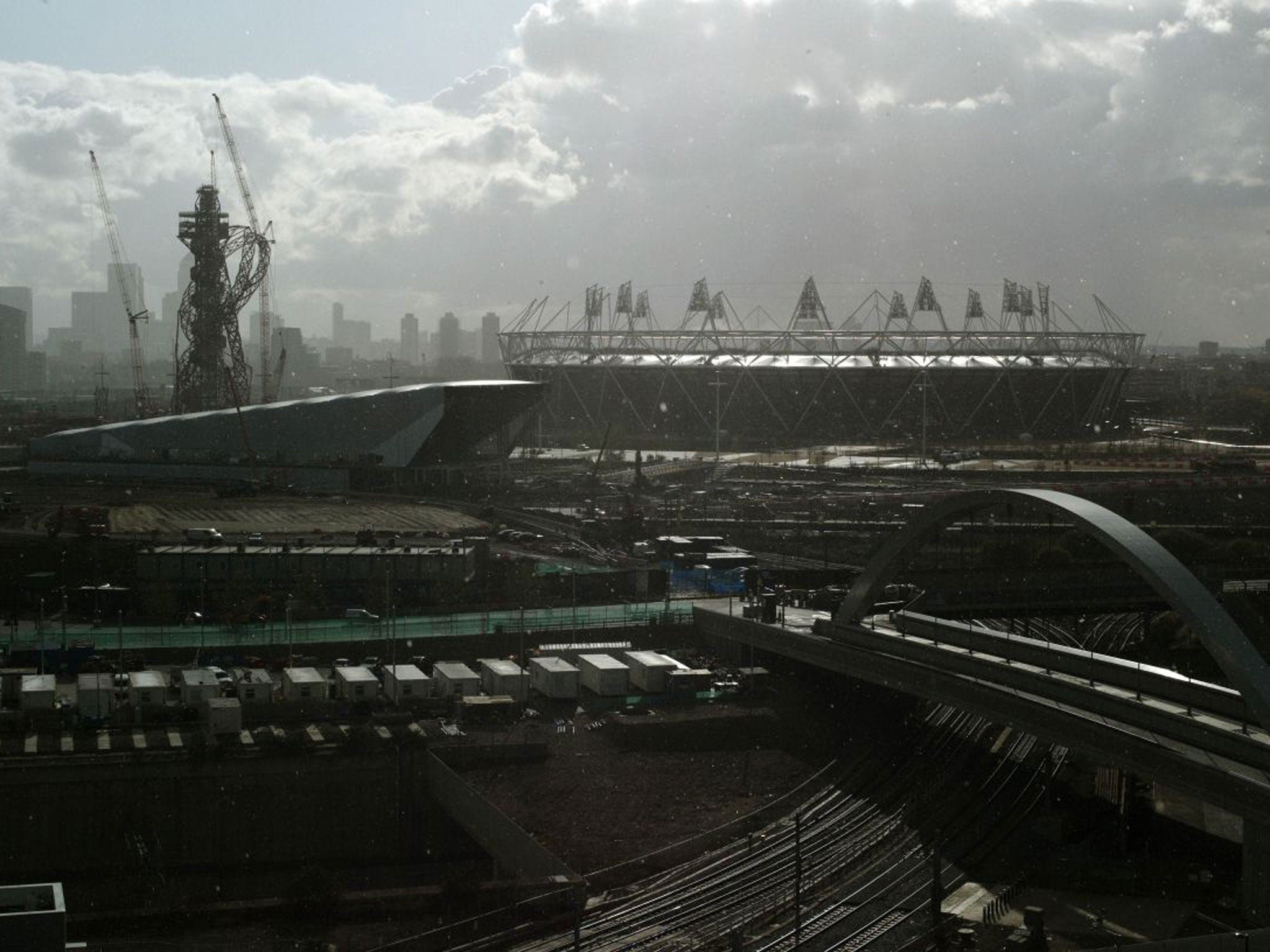Building firms could face bans over blacklisting of workers
Councils say companies that illegally excluded employees will be barred from public contracts

Your support helps us to tell the story
This election is still a dead heat, according to most polls. In a fight with such wafer-thin margins, we need reporters on the ground talking to the people Trump and Harris are courting. Your support allows us to keep sending journalists to the story.
The Independent is trusted by 27 million Americans from across the entire political spectrum every month. Unlike many other quality news outlets, we choose not to lock you out of our reporting and analysis with paywalls. But quality journalism must still be paid for.
Help us keep bring these critical stories to light. Your support makes all the difference.
Construction companies involved in the blacklisting of workers could be prevented from tendering for public contracts worth billions of pounds. The Scottish government is considering preventing companies from bidding for work if they are implicated in a scheme to blacklist construction workers. Additionally, tens of councils across England, Scotland and Wales are considering moves to exclude the companies from local government contracts.
The blacklist was drawn up by the Consulting Association (TCA), which was closed down in 2009 following a raid by the Information Commissioner's Office (ICO). The raid revealed a database with the names of construction workers and environmental activists used by 44 major companies. MPs and unions say the list was used to ruin the job prospects and reputations of those on it.
The ICO fined the former chief officer of TCA, Ian Kerr, £5,000 in 2009 for operating the list. Mr Kerr later told MPs on the Scottish Affairs Committee (SAC) that Sir Robert McAlpine Ltd paid the £5,000 fine, as well as providing finance to wind up the association. Mr Kerr told MPs that firms involved in high-profile public projects such as the Olympic Park, Portcullis House in Westminster and Wembley stadium had used the blacklist.
The list operated for at least 16 years and contained the names of 3,213 construction workers active in trade unions or those who had expressed legitimate health and safety concerns.
MPs said that while the blacklist was not initially illegal, it was always "morally indefensible" and companies involved continued to use it after it had become illegal. Evidence disclosed to Parliament included notes on blacklisted individuals that said: "Subject is a shop steward and member of the TGWU. Is a troublemaker. If she is not a member of the CP [Communist Party] her husband certainly is."
The GMB union has met Scottish government officials to exclude the companies involved in blacklisting from contracts. A Scottish government spokesman said: "Officials met union representatives to discuss new guidance to update existing public procurement processes and procedures in light of blacklisting of employees by contractors in the construction industry."
Motions have been presented to councils throughout the country supporting the campaign to bring companies to justice.
Justin Bowden of the GMB said: "We are pushing for councils not to do business with the people who were blacklisting workers until they have purged their guilt and they have apologised and compensated those who were blacklisted."
Dave Smith, one victim who set up the Blacklist Support Group, added: "Local authorities are telling us that when contracts come up for renegotiation we know they will be thrown off it."
In a BBC Panorama interview to be broadcast tomorrow night Mr Kerr's widow, Mary, who was the book-keeper for TCA, says that major construction firms such as Laing, Sir Robert McAlpine Ltd, Balfour Beatty and Amec secretly paid to send the names of thousands of workers to TCA, where they were checked against a database to see if they had been previously involved in construction site disputes. Mrs Kerr said: "Ian read out the information that was held exactly as it had been recorded and the HR director or manager would decide whether to employ or not."
A report by the Scottish Affairs Select Committee suggests the construction giant Sir Robert McAlpine Ltd was behind the creation of the blacklist. Other major subscribers included Skanska and Balfour Beatty. Sir Robert McAlpine Ltd, whose director Cullum McAlpine appeared before the committee, has denied it had operated a blacklist. Balfour Beatty admitted it used the company until 2009 to carry out reference checks on employees. Skanska said it was "truly sorry for its involvement" and that "the use of blacklists is against the values and behaviours of our company".
Subscribe to Independent Premium to bookmark this article
Want to bookmark your favourite articles and stories to read or reference later? Start your Independent Premium subscription today.
Join our commenting forum
Join thought-provoking conversations, follow other Independent readers and see their replies
Comments